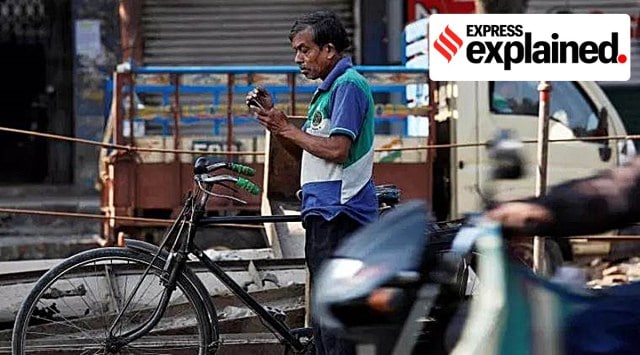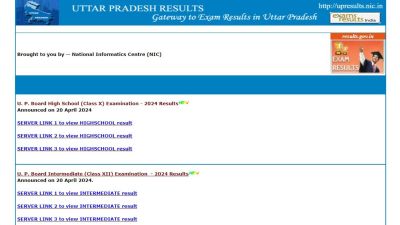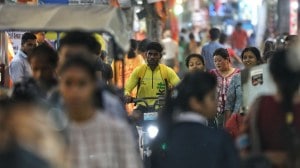- India
- International
Explained: The frequency, reasons, and controversy over Internet suspensions by the government
According to the Software Freedom Law Center, since 2012 there have been 665 Internet shutdowns in India to date.
 There is no official data on the number of shutdowns but based on estimates by research organisations, it would seem their frequency has increased over the last few years. (Reuters/File)
There is no official data on the number of shutdowns but based on estimates by research organisations, it would seem their frequency has increased over the last few years. (Reuters/File)Following the brutal on-camera killing of tailor Kanhaiyalal Teli in Udaipur by two men, the Rajasthan government imposed a ban on Internet services. Shutting down the Internet as an administrative or law-and-order measure has been a common step taken across India — for a range of reasons and by almost all political parties and governments.
There is no official data on the number of shutdowns but based on estimates by research organisations, it would seem their frequency has increased over the last few years. An increasing number of people have been impacted as a result, because Internet usage has been going up in India, and the coronavirus pandemic has made it even more of a commonly used essential service.
How do Internet shutdowns affect people, and why do governments impose them?
What do the data on internet suspensions say?
According to the Software Freedom Law Center (SFLC), a legal services organisation working in this field in India, since 2012 there have been 665 Internet shutdowns in India to date. Here, ‘shut downs’ mean a total ban on mobile (3G, 4G/LTE), or fixed-line (dial-up, wired/wireless broadband) Internet, both or either of which may be shut down.
According to Internet freedom and tech policy organisations, India is the leading country (by number) for Internet disruption incidents and frequency of shutdowns. This year, 59 shutdowns have been enforced, according to SFLC, which determines shutdowns based on government orders and media reports.

This brings up another question: Internet shutdowns are not always officially announced, so it might be difficult to know if your phone is simply not working properly, or if a shutdown is in place. Raman Jit Singh Chima, Senior International Counsel at Access Now, which works for securing an “open Internet”, told The Indian Express that some telecom companies in states like Rajasthan alert people through SMS messages, but there is no requirement for it.
Jammu and Kashmir has had more than 411 shutdowns since 2012, and the longest one went on for more than 552 days after the abrogation of the special status of the erstwhile state.
Among the states, Rajasthan has had the most shutdowns — with 88 such instances in almost 10 years. The reasons have ranged from protests by the Gujjar community for reservation, to preventing cheating in the Rajasthan Eligibility Examination for Teachers (REET) held to select primary school teachers last year, which was taken by an estimated 16 lakh aspirants.
How do governments justify shutting down the Internet?
Governments say misinformation and rumours can lead to deterioration in law and order in an area, so curbing the flow of information helps maintain peace among communities in times of crisis.
But many experts have countered that in the absence of information sources like news outlets, rumours can actually end up spreading even more. Also, important services such as those related to payments, banking, and educational access, all get cut in an instant, resulting in disruptions at multiple levels and economic losses.
What is the procedure for shutting down the Internet?
In February 2022, Lok Sabha MP Varun Gandhi asked in Parliament whether the government maintains records for shutdowns or has plans to do so, and if not, what protocol is followed.
Minister of State for Communications Devusinh Chauhan replied that The Review Committee in states, chaired by the Chief Secretary (the senior-most civil servant in a state) is mandated through the Temporary Suspension of Telecom Services (Public Emergency or Public Safety) Rules, 2017, to decide that the shutdowns have been made as per rules.
The rules framed by the central government say temporary suspensions can be “due to public emergency or public safety”, and give senior bureaucrats from the Home Ministry at the central and state levels the power to order shutdowns.
Newsletter | Click to get the day’s best explainers in your inbox
Before these rules came into force in 2017, Internet shutdowns were ordered under Section 144 of the Code of Criminal Procedure, which gives District Magistrates broad powers during dangerous situations.
What then, is the debate over shutdowns?
Anuradha Bhasin, a Kashmiri journalist, petitioned the Supreme Court regarding the Internet shutdown in Jammu and Kashmir, which she said had put a halt to the work of printing newspapers, and life in general.
In its order passed in January 2020, the court ruled that “freedom of speech and expression and the freedom to practice any profession or carry on any trade, business or occupation over the medium of Internet enjoys constitutional protection under Article 19 (1) (a) and Article 19 (1) (g)”.
The court directed the J&K administration to “review all orders suspending Internet services forthwith” since “an order suspending Internet services indefinitely is impermissible”.
It said, “restriction upon such fundamental rights should be in consonance with the mandate under Article 19 (2) and (6) of the Constitution, inclusive of the test of proportionality”.
The court directed the government to mandatorily publish all orders permitting Internet shutdowns, setting the stage for the first time for challenges to suspension orders before courts. In December 2019, the Gauhati High Court had directed the Assam government to restore the Internet in the state after reviewing the suspension orders.
In December 2021, Parliament’s Standing Committee on Communications and Information Technology, headed by Congress leader Shashi Tharoor, said: “…Governments have resorted to telecom/Internet shutdown on grounds not so pressing and have been regularly using this as a tool for routine policing and even administrative purposes, such as preventing cheating in exams to defusing local crime, which do not amount to large scale public safety concerns and certainly do not amount to a ‘Public Emergency’”.
The Ministry of Home Affairs said to the committee: “The expression public emergency has not been defined in the statute, but contours broadly delineating its scope and features are discernible from the section which has to be read as a whole. The appropriate authority has to form an opinion with regard to the occurrence of a public emergency with a view to taking further action under this section.”
Some of the committee’s suggestions included defining terms like ‘public emergency’ to avoid their usage without due cause. It added that certain apps or websites could be banned, such as WhatsApp, where the possibility of rumours being widely circulated is high, while other Internet services could remain available to users.
More Explained
EXPRESS OPINION
Apr 20: Latest News
- 01
- 02
- 03
- 04
- 05









































